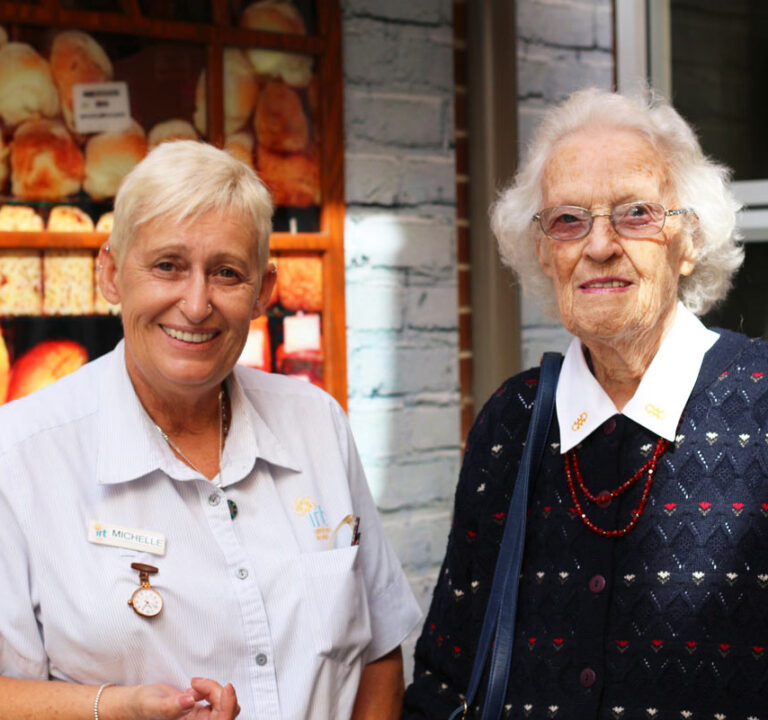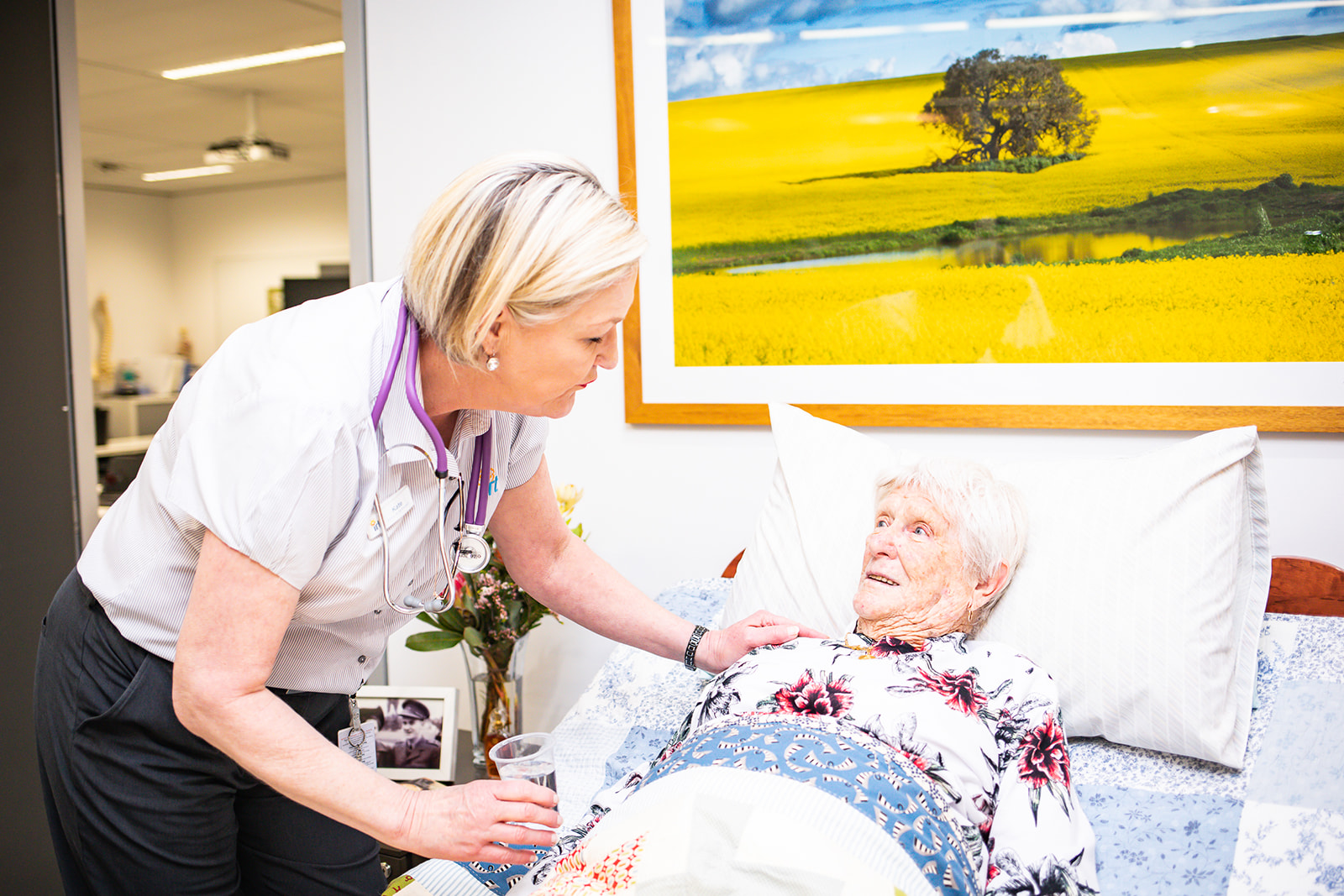Advance care planning: what do I need to know?
In this article we break down exactly what advance care planning involves, how to go about it and why it’s so important for your future health care.

Would you let someone else write your will, deciding what happens to your financial assets when you pass away? No way, you say. And yet, three out of four people over the age of 65 haven't started planning for their future health care or drawn up an advance care directive to set out instructions about what happens to them should they lose the ability to make decisions about their health and wellbeing.
If you're like most people and haven't embraced advance care planning, it means someone else will be left to make critical decisions about your treatment and care if you can't.
So, what can you do about it?
It's never too early to consider advance care planning. Every day people are diagnosed with a chronic illness or a sudden medical event where they lose their capacity to express their preferences and yet important decisions about their treatment need to be made. So, it's a good idea to start planning when you're healthy and before there's an urgent need for a plan.
It is a human right that we should be able to express what our future preferences are and ensure we plan for what treatment we may or may not want to receive.

What is advance care planning?
Advance care planning involves having conversations about, and planning for, your future health care and personal care. It relates to the type of care you'd like to receive if you were to become seriously ill or injured and unable to communicate your preferences or make decisions.
Advance care planning also helps to ensure that your family, close friends, carers, and doctors know your values, beliefs and preferences.
Who needs an advance care plan?
Everyone should have an advance care plan - and you don't need to wait until you're a certain age to start thinking about your future care and preferences. Anyone with capacity can make an advance care plan, but it is particularly important if you:
- are older and frail
- have a chronic or terminal illness
- have multiple diseases
- have an early cognitive impairment
- are approaching the end of your life
How to get started
Advance care planning involves three main steps:
- Think about what you want
You can start advance care planning by thinking about what you want when it comes to your end-of-life care. Advance care planning should be done well before someone enters into aged care so that, in the face of declining health, you have a sense of certainty, choice and control. You can access an advance care planning starter pack online here. - Communicate with your loved ones
The next step is to talk to your loved ones and let them know what your wishes are. These conversations can be difficult, but there are many tips available online to support you. - Document and formalise your preferences in an advance care directive
You can formalise your advance care plan in an advance care directive. An advance care directive only goes into effect if you are unable to make decisions for yourself. If that time ever comes, your advance care directive will guide your loved ones and doctors so that they can make decisions that are in harmony with your wishes.
It's also a good idea to appoint a substitute decision-maker to help ensure your preferences are respected. Depending on the state or territory, a substitute decision-maker can be an enduring power of attorney, guardian, agent, or person responsible.
Forms and requirements for writing advance care directives vary between states and territories and can be found on the Advance Care Planning Australia website.

What is an advance care directive?
An advance care directive, which is also referred to as a living will, is a very significant document that details your treatment preferences. It covers your:
- Consent for future treatment
- Refusal of treatment
- Request to withdraw some form of future medical treatment.
You can include instructions about where and how you wish to die – at home or in a hospital – and if you would like to have your family or friends with you. You can also choose to include information about your values and beliefs, which will help guide any decisions made on your behalf.
Uploading your advance care directive to your My Health record
It’s a good idea to upload your advance care planning documents to your My Health record so it’s available to your treating doctors and health professionals when the time comes.
If you need help uploading your advance care planning documents to your record, you can watch a step-by-step video here.
Why is planning for your future health care important?
Some benefits of advance care planning include:
- Your family as well as your health and care professionals will be aware of your preferred end-of-life care. This might include information about your specific medical decisions to ensure you avoid unwanted treatment and pain.
- There will be less pressure on your family because they'll know what you want. This can minimise conflict between family members and ease their grief.
- The treating doctors, nurses and healthcare providers will feel more confident they've delivered care that is aligned with your wishes.
Why do so few people have an Advance Care Directive in place?
There are many reasons and the first is a lack of awareness.
There hasn't been a lot of investment in raising awareness of the issue nationally until the past few years. Advance Care Planning Australia (ACPA), which has been operating in its current form since 2016, is a national program funded by the Australian Government Department of Health.
As the peak body and national authority on advance care planning, ACPA is working hard to lift the number of Australians who have a directive in place. Each year it runs a national campaign and encourages people to use the resources on its website to inspire conversations about what we value most in life.
The second reason for the low take-up is that it can be tough to talk about end of life. Generally, people are very comfortable with planning most aspects of their lives, including their education, career, weddings, where they might live, whether to have a family, which school to send their children to and the holidays the want to have. But talking about death and dying is a struggle for many, and so people tend to avoid it.
Nevertheless, advance care planning is the only way to ensure choice and control over what happens to you at the end of your life.
Advance care planning support
If you or a loved one needs further support with advance care planning, you can visit the Advance Care Planning Australia website or call the National Advance Care Planning Support Service on 1300 208 582.
You can also speak to your doctor or health professional if you have any questions about planning for your future care too.

Does your loved one need support?
IRT has been supporting older Australians and their families with compassionate care for more than 50 years with aged care centres in NSW, Qld and the ACT. If your loved one needs warm and personalised care you can trust, we'd be more than happy to help.
Find out moreYou may also like
Palliative care vs end of life care: what's the difference?
What is palliative care? People think palliative care is the end of someone’s life, but there’s so much more to it.
Choosing an Aged Care Centre: What to consider
Moving from your home into a residential aged care centre can be a rewarding experience for you or your loved one.


